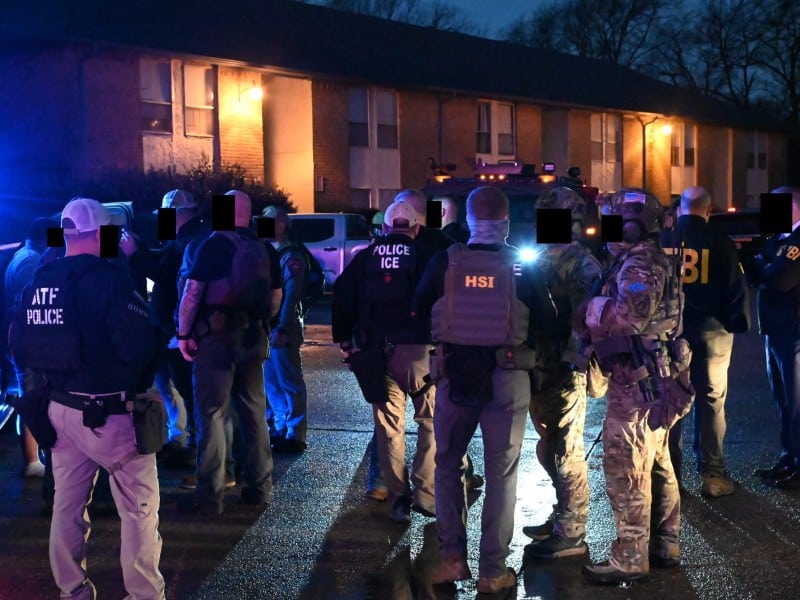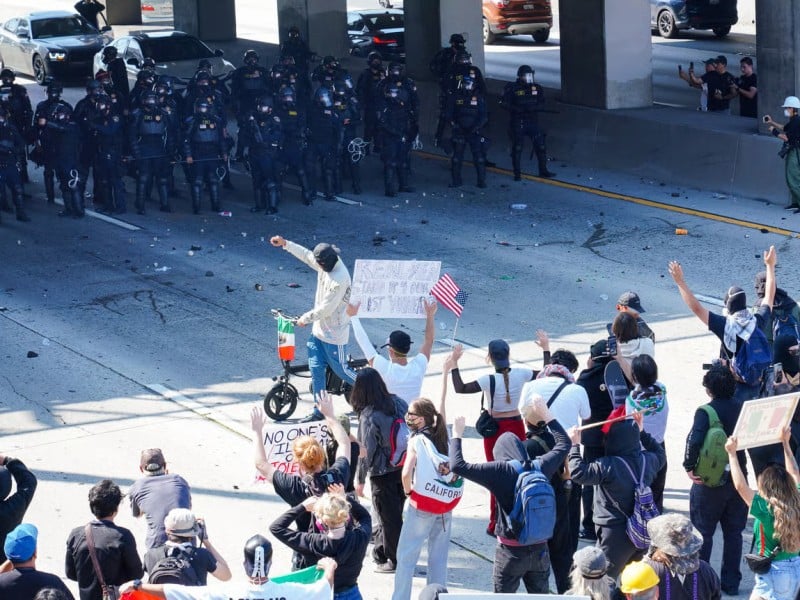The LATINO VOTE 2024 Will Be Diverse and Decisive in New PBS Doc
In 2020, Ruiz made Latino Vote: Dispatches from the Battleground for PBS and considers himself a “veterano” who’s been “reading and thinking” about the Latino vote since the 90s. In that time, he’s noticed “greater attention being paid by both the campaigns and the media to Latino voters… we can argue about how thoughtful that coverage is, but you’re definitely seeing more of it.”

Originally published in The Latino Newsletter–reprinted with permission.
“The way that people are put into categories, in spreadsheets, the way they are targeted to, it matters,” Bernardo Ruiz tells The Latino Newsletter. He’s a documentarian with over 20 titles and three Emmy nominations to his name, and we’re talking about his latest project, Latino Vote 2024. It will air on PBS tonight (and is available now in full on PBS’ YouTube in a bid to get younger, more diverse audiences to tune in).
In 2020, Ruiz made Latino Vote: Dispatches from the Battleground for PBS and considers himself a “veterano” who’s been “reading and thinking” about the Latino vote since the 90s. In that time, he’s noticed “greater attention being paid by both the campaigns and the media to Latino voters… we can argue about how thoughtful that coverage is, but you’re definitely seeing more of it.”
Embodying that critique, the film opens with a montage of “Hispandering”—think Joe Biden playing “Despacito” on his phone or Ronald Reagan donning a “giant sombrero.” This lack of quality outreach to Latino voters —even if we’re getting more quantity— makes documentaries like Ruiz’s Latino Vote 2024 all the more necessary, for voters and prognosticators alike.
Latino Vote 2024 producer and investigative journalist Marcia Robiou tells The Latino Newsletter that she was interested in dispelling the myths about our community in the film: “We’re not all undocumented immigrants, and overwhelmingly, we speak English. A lot of us are bilingual. Any Latino who hears this will be like, ‘Yeah, of course,’ but still, this is something that needs to be explained and needs to be challenged in some mainstream media outlets.”
With that baseline, Robiou gets into the nuance, looking at polls of Latinos’ top issues. “A big departure from 2020 is that gun violence and abortion have reached the top five issues for Latinos,” she shares. And the film looks at both carefully, offering sobering statistics about the rise of gun-enabled hate crimes against Latinos and the Latino evangelical community’s debate around balancing the parties’ stances on abortion against their general human rights records.
Challenging Misperceptions
Still for Robiou, the most problematic misconception about our community is that “Latinos don’t vote because we’re not interested, we’re not engaged, when that couldn’t be farther from the truth.”
There is a “voter registration gap” as she calls it, with Latinos voting at the lowest rates of any ethnicity.
“Political parties and organizations that work on registration, they don’t target what’s known as ‘low propensity voters,’” Robiou explains. “It’s this myth that just keeps compounding, where it’s like, ‘Oh, they don’t vote, so we’re not going to reach out to them,’ and then they don’t vote because no one’s reached out to them and they don’t know how to register.”
With this low level of quality outreach, our community’s vote is ripe for the picking, including from bad actors who’d use misinformation to garner our support.
“It’s notable how strong the talking points and the rhetoric, often with false information, misinformation, or just straight-up lies, how that has really taken root,” Ruiz says.

Courtesy of LATINO VOTE 2024
He notes, “There’s been a reporting trend on this idea of Latino voters shifting to the right, and I think that’s true in some cases, but as the film tries to unpack, it’s a little more complicated than that.”
Indeed, after setting up its topic, the film spends its first third on the Latinos for Trump crowd, showing a variety of Latino voters, politicians, and organizers working on the right. Then it shifts, explaining how Latinos have voted across decades, roughly breaking one-third Republican and two-thirds Democratic. The back half of the film then explores the reasons, obstacles, and expectations of blue-leaning Latino voters across states and nationalities.
With two weeks before the election, Latino Vote 2024 delves into the reasons Latinos make the choices we do at the ballot box. A lot’s at stake.
Our diverse community may just be decisive in 2024, and as Ruiz puts it, “These forces will impact the election and will shape all of our futures.”
Latino Vote 2024 is available in full on PBS’s YouTube channel. It also airs tonight on PBS. Check your local listings for times.




